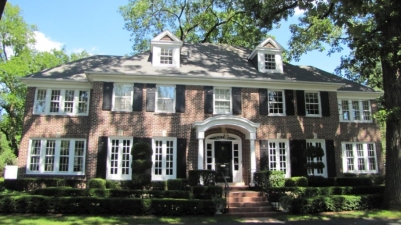 Isn’t it the American dream to own a home in an affluent town with excellent schools? Well, here I am. Let me tell you, it’s not all it’s cracked up to be.
Isn’t it the American dream to own a home in an affluent town with excellent schools? Well, here I am. Let me tell you, it’s not all it’s cracked up to be.
I know, I know – “first world problems”, as my kids remind me. But we have great concerns for our family here. We are concerned about the lessons our kids are learning about the meaning of “success”.
We live in an affluent Connecticut town where the median home value is almost $300,000 and many neighborhoods are full of one to two million dollar homes that are five to six thousand square feet in size. The definition of “success” is everywhere you look. People drive Porsches, BMW’s, and a few have convertible Ferraris for summertime fun. Not uncommon to see a Maserati drop off a kid at school. Our schools are ranked in the top three or four in the state. Our own family is extremely comfortable in a four thousand square foot home with a three-car garage and a BMW convertible. I know, sounds like paradise.
Our kids are surrounded by affluence. Family median income is about $145k and almost 40% of households earn more than that. They’re not all white (many Asians), but very few are African-American or Hispanic. Although that bugs us, our bigger concern is that our kids have very few interactions with children who are socioeconomically different from them.
Our kids live in a microcosm that doesn’t reflect the real world. Their classmates wear clothing from Vineyard Vines, Tory Burch flats, and they carry the latest iPhones (many sport Apple watches). Dads are typically VP-level executives who work very long hours and often travel for days or weeks at a time. Stay at home moms fill their days with classes at a gym or barre studio, shopping, lunching and Facebook. The rare working mother employs au pairs, sitters, tutors and housecleaners to raise the kids and manage the cavernous homefront.
The kids are often total disasters because no one’s really paying attention to them. They’re whiny, rude, overindulged, and arrogant. When they’re not playing whatever sport their parents hope they’ll get a scholarship in or in a Kumon class, they spend their time playing video games (boys) or posing for Instagram selfies and jockeying for social status (girls). These kids are disinterested in important community and world events, uninterestING and, sadly, lost. Imagine the “successful” grown-ups they’ll become.
I came from a much different place, as did my husband. We were raised in towns full of middle class families, and our friends’ parents worked as construction workers, plumbers, cashiers, medical assistants and claims processors. We had a few “rich” friends with professional parents (lawyers, doctors) but they were the exception. And those kids were raised to keep a low profile and not draw attention to the fact that they had more than their friends.
Our schools weren’t top-ranked but they were good, and full of diversity, both in terms of skin color and household income. I won’t say there wasn’t a degree of self-segregation – socially, blacks hung out with blacks and whites hung out with whites. But we were friends, we all respected each other, and we learned about each others’ cultures and values. We knew each other personally, so the stereotypes vocalized by prejudiced grandparents didn’t really have a chance to take hold.
My husband and I both had friends who grew up with five or six siblings in three-bedroom, single-bathroom homes that were 1200 square feet in size (some had dogs!). Spending time in their homes, we learned how they and their siblings respected each others’ personal spaces and boundaries. Valuable lessons for everyone in all walks of life.
My husband and I do the best we can to talk a lot with our kids and to expose them to those who are different and less fortunate than we are, but we have to work hard at it and the opportunities are nothing more than brief glimpses into those worlds. We’re worried it’s not enough to counteract the distorted world view engendered by the superficial bubble world we’re living in. Our kids need to really get to know people from differing economic classes in order to appreciate and understand those differing perspectives. And that, in turn, will help our kids appreciate and understand their own places in the world.
We’ve discussed this with friends in town who share our concerns. We all agree, moving out is easier said than done. (Just imagine the gossip, “They’re moving where?” Everyone will assume my husband was demoted or lost his job.) The allure and exterior perfection of affluence is seductive and hard to turn away from. But we’re convinced, for our kids’ sake, it’s time to move our family to a “real” town. We would rather our kids attend lower ranked schools and have a more accurate understanding of (and friendships with) those from other backgrounds and economic classes. It will make them more compassionate adults, which will make them better human beings. That will be the barometer of “success” for our children.
